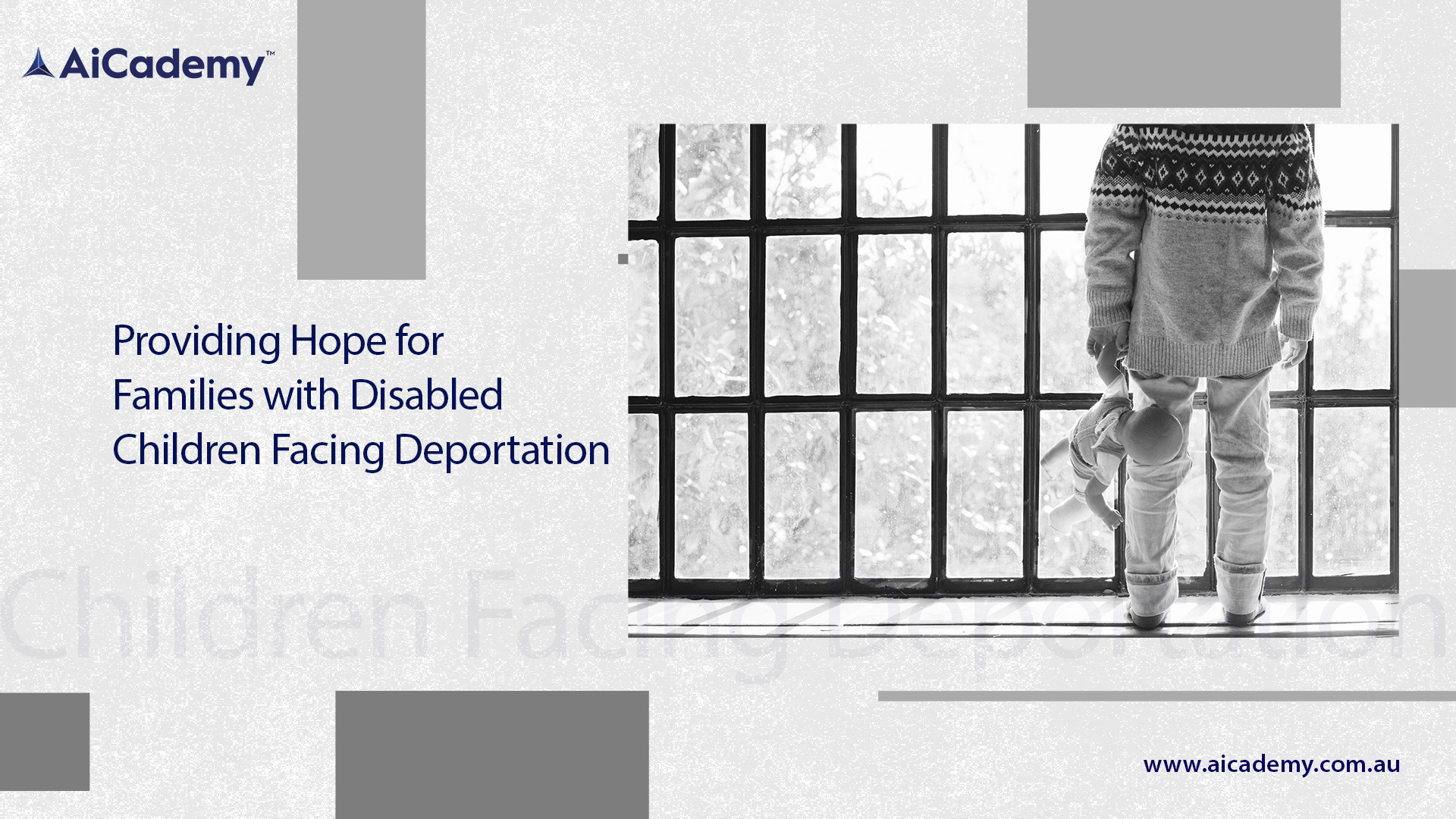In a significant move driven by international pressure, the Australian government has agreed to review its practice of deporting migrant families with disabled children due to the perceived high cost of their care. This crucial shift is the result of a deal struck with the Greens in exchange for support for Labor's delayed Pacific visa lottery, demonstrating a commitment to fortify the nation's regional presence while overhauling its immigration policies.
At the center of this review is the mechanism known as the "significant cost threshold." This mechanism calculates the cost of caring for a disabled child over a ten-year period and mandates deportation if the projected expenses exceed $51,000, a level considered too burdensome for the Australian community. The Greens, who have been advocating for a change in this policy, argue that this exemption from the Disability Discrimination Act is discriminatory and inhumane.
Greens disability spokesperson, Senator Jordon Steele-John, condemns Australia's current migration system as ableist, insisting that such blatant discrimination based on disability belongs in the dustbin of history. Nick McKim, the party's immigration spokesman, emphasizes the need to align migration settings with community standards, striving for a fair and inclusive system.
In response to these concerns, Immigration Minister Andrew Giles has initiated a review of the significant cost threshold, which will be led by the Department of Home Affairs' chief medical officer. Over the past few years, several families have faced deportation, often with ministerial waivers being the only means of staying in the country. Giles has expressed his criticism of the current approach to migration health requirements, claiming that it fails to meet community expectations. He has personally intervened in all cases that have come before him to prevent deportations.
One such family, the Butt family, faced deportation until Giles's intervention came to their aid. Their son, Shaffan, born with a genetic condition, chondrodysplasia punctata, was left paralyzed. Another family, led by Krishna Aneesh, who is a cybersecurity expert, faced deportation due to her son Aaryan's intellectual disability and Down syndrome. Both families, like many others, contribute to Australian society, pay taxes, and integrate within the community.
Down Syndrome Australia chief executive Darryl Steff suggests that while the ultimate goal is to eliminate discrimination against disabled visa holders, immediate steps should be taken. These steps include doubling the cost threshold, eliminating the cost of education as a factor, and making waivers available for all types of visas.
In his letter to McKim, Giles outlined the areas of focus for the review, including how costs are calculated, what expenses are included, and where thresholds are set. In the interim, any child born in Australia and adversely affected by the migration health rules can apply for ministerial intervention after merits review.
This agreement with the Greens is part of a broader migration reform initiative undertaken by Labor. Their aim is to strengthen Australia's role in the region by providing greater job opportunities and pathways for permanent migration to Pacific Island nationals. The Pacific Engagement Visa, which will allow 3000 Pacific nationals to enter Australia annually, has garnered support from various quarters, with Fijian Deputy Prime Minister Biman Prasad urging the government not to delay its implementation any further.
As the world grapples with pressing issues like climate change, these steps towards deeper integration are not only timely but essential. The Fijian Prime Minister, Sitiveni Rabuka, emphasized that the temporary Pacific Australia Labour Mobility scheme, though helpful, is not a long-term solution to the employment and unemployment challenges facing Pacific Island nations. The need for new ideas and comprehensive policies to address these issues is paramount.
In conclusion, the agreement between the Australian government and the Greens to review the deportation of migrant families with disabled children represents a positive step towards a more inclusive and fair migration system. The shift is aligned with broader reforms aimed at enhancing Australia's engagement in the Pacific and recognizing the value that migrants bring to the nation. It offers hope to families facing deportation and highlights the importance of a compassionate and equitable approach to immigration policy.
Ref - https://www.smh.com.au/politics/federal/hope-for-families-facing-deportation-for-having-disabled-children-20231017-p5eczl.html




















































